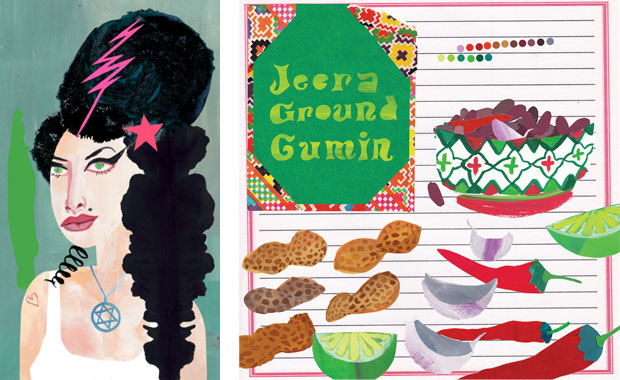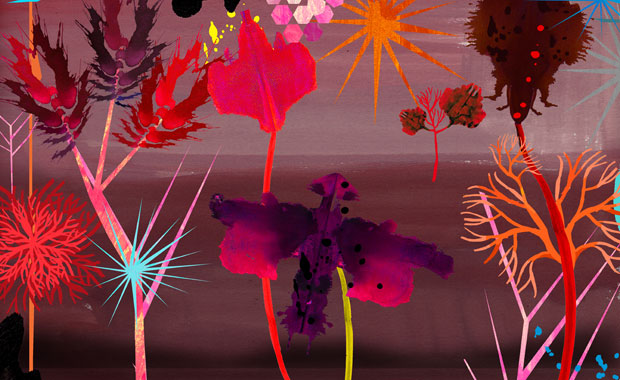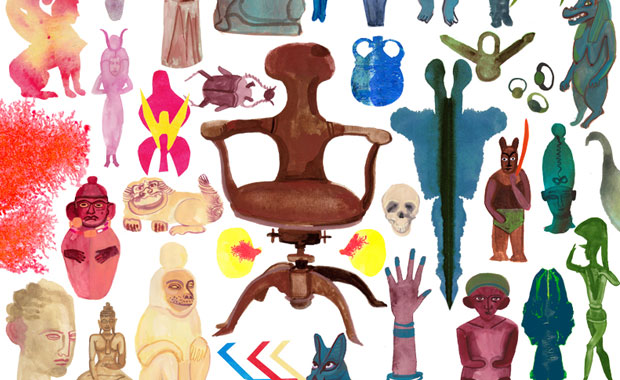In the first of our series of illustrato.rs interviews, we caught up with Catell Ronca in her Gloucestershire studio...
What are you working on at the moment?
Currently, I am making narrative pieces, exploring and experimenting with abstract and figurative narration as well as drawing what I see around me in my sketchbook.
Where does your inspiration come from?
Foot journeys, architectural experiences in nature, plants in cities, hand-painted signs, small things, animals, conversations, astrology, ethnic food, BBC Radio 4, other people’s homes, dialects and accents, artistic expressions of human emotion, shamanism, Naples, Gloucester and Peckham...

Describe your process of image making...
I start off by drawing my idea with pencil in a sketchbook, trying to visualise the images in my head as thumbnails and then as detailed as possible before I get my gouache and brushes out. I then start messing around with colour and shapes until something ‘speaks’ to me. When I am under time pressure, I paint vignettes in my sketchbook, scan and assemble all the best bits to a final digital collage. Otherwise I try and work on one painting or collage with lots of painted bits of paper. I am trying to work less and less on the computer, as I feel it has a negative effect on my energy levels and I get too distracted by the internet.

Do you think it is important to have a single, identifiable, artistic style? Is there any value in constantly evolving one's style or is it better to develop a distinctive one and stick with it?
I think it is recommendable, certainly from a commercial point of view, to have one identifiable style. This can be quite loose, however. I find important that my style can be adapted to a variety of audiences, for children's books as well as for adult literature or design. A style is a bit like handwriting, you can't force it to look a certain way and it will naturally evolve continuously.

How do you feel about the tension between commercial and authorial considerations?
Working to a client's brief can be dull at times (but not always!), however, it can also be very helpful because it gives constraints. It is way harder for me to create personal work without being tempted to change the parameters. Authorial work is where my personal artistic growth happens, where I can allow myself to dig deeper and address issues that are more personal and sometimes quite dark. I need commercial work in order to finance my authorship work, and on the other hand, authorship work can lead to commercial commissions.
